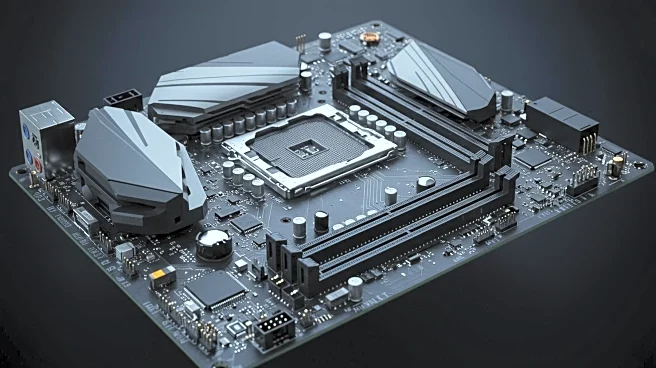What's Happening?
The Trump administration is reportedly planning to acquire a 10% stake in Intel, a move that would make the U.S. government a major shareholder in the struggling chipmaker. This development follows a Bloomberg report that led to a 5.5% increase in Intel's shares. President Trump has expressed that the government should acquire this stake, which would be a significant vote of confidence in Intel. Discussions between the White House and Intel are ongoing, with no final agreement yet. Intel CEO Lip-Bu Tan has not explicitly agreed to the deal, and a meeting between Trump and Tan is scheduled. The move is part of a broader shift in U.S. industrial policy, with the government seeking an equity stake in exchange for grants under the CHIPS Act. The government’s stake would carry no voting rights.
Why It's Important?
This potential acquisition is significant as it reflects a shift in U.S. industrial policy towards more direct involvement in private corporations. By acquiring a stake in Intel, the government aims to bolster the domestic semiconductor industry, which is crucial for technological advancement and national security. Intel is the only U.S. company capable of producing the most advanced chips domestically, although it lags behind international competitors like TSMC. The investment could help Intel accelerate its development and production capabilities, potentially reducing reliance on foreign manufacturers. However, this move also raises questions about government involvement in private enterprises and its implications for market dynamics.
What's Next?
If the deal proceeds, it could set a precedent for future government investments in private companies, particularly in strategic industries like semiconductors. Stakeholders, including political leaders and industry experts, may debate the merits and risks of such government involvement. The outcome of the meeting between President Trump and Intel CEO Lip-Bu Tan will be crucial in determining the next steps. Additionally, the reaction from other semiconductor companies and international competitors will be closely watched, as this move could influence global market dynamics.









